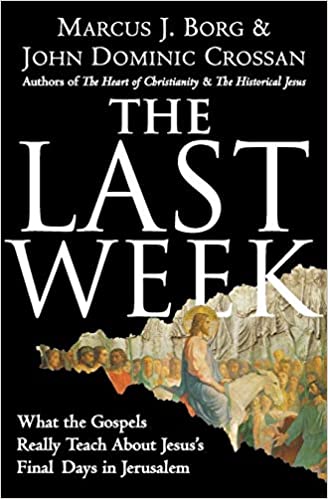Rev. Dr. Molly Scherm
Palm Sunday invites us to consider a story that has many layers. In it, after a journey from Galilee of what seems to have taken weeks if not months, Jesus and his disciples reach the Holy City of Jerusalem. They reach Jerusalem at a time when the city is filled to bursting with pilgrims who have come to celebrate the Passover, an 8-day festival commemorating the deliverance of the Hebrew people from slavery.
Matthew tells us, in the gospel we just heard, that “the whole city was in turmoil.” Recalling liberation from oppression by another Pharaoh must have heightened existing resentments in the Jewish community toward their occupation by Rome. It must have fueled their dream of another liberation through a Messiah promised by the prophets. And Jesus’ reputation as a great rabbi and a miracle worker preceded him. So his arrival in the turmoil-filled city was bound to be dramatic. And indeed, the crowds welcomed him with shouts of joyful celebration. But we who recall the story these two millennia later see the underlying layers, because we know where this story is heading. Recent New Testament scholarship has provided us a new perspective on Jesus’ entry into Jerusalem, in contrast to the way most of us understood this familiar story as we were growing up. Marcus Borg & John Dominic Crossan, in The Last Week: What the Gospels really teach about Jesus’ final days in Jerusalem give us a new look at the meaning of Jesus’ entry into Jerusalem, riding a donkey, cheered by adoring crowd waving palm branches & shouting “Hosanna”. Borg and Crossan tell us that at the same time that Jesus entered, another procession was taking place on another side of city. Roman Governor came up, annually, from his palace at Cesarea to be present during Passover Festival in case trouble broke out, and he was accompanied by platoons of soldiers to reinforce his authority. The purpose of Imperial Procession was intimidation. Jesus’ procession provided a stark contrast, intentionally exemplifying humility, recalling a passage from the prophet Zechariah: Lo, your king comes to you; triumphant and victorious is he, humble and riding on a donkey, on a colt, the foal of a donkey (9.9). That king, the prophetic passage continues, will be a king of peace: “He will cut off the chariot from Ephraim and the war horse from Jerusalem; and the battle bow shall be cut off, and he shall command peace to the nations. Borg and Crossan’s contention is that Jesus’ choice in entering the city is not only a conscious fulfillment of scripture, but is also a deliberate protest against the culture of Roman imperial power. They believe that Jesus’ demonstration was neither missed nor ignored, and that his execution, later that week, was punishment by Rome for having mocked the authority and pomp of the imperial procession. I think this Palm Sunday story may be the most heart-breaking gospel story that we read. When we recall it, each Palm Sunday, what cries out to me is how lonely it must have been for Jesus to endure the adoration of the crowd, knowing how wrong they were in their hopes and expectations; knowing what, in fact, lay before him; knowing how the confrontation with those in power would end. How disappointing it must have been to Jesus to try again and again to prepare his disciples for the road ahead, only to have them cling to their denial. And, as is so frequently the case, isn’t this a story we can relate to? We are no different from the crowds, from the disciples, in refusing to take seriously news that we don’t want to hear. Did we want to believe, two months ago, that the virus wreaking havoc in Asia was going to upend our lives? How many of us actually took seriously the recommendations of the CDC, and stayed home unless we absolutely needed to, and maintained the 6-foot distance from others that would slow transmission of this deadly virus? Wouldn’t we just love to have a savior who could deliver us from this terrible and terrifying situation? The incredible message in this Palm Sunday gospel is that despite the crushing loneliness and disappointment, Jesus keeps heading where he needs to go. God in Jesus accepts that foolish and fickle crowd, those shortsighted and self-absorbed disciples, and loves them – loves US – as we are in our own foolishness and shortsightedness. Jesus is the embodiment of God’s love for the world, for all of the world – the righteous and unrighteous, the faithful and faithless. Jesus holds the power and the glory of the hosannas, and he gives them up. God comes to us in vulnerability and weakness, to join us and embrace us, rather than to rescue us. God in Jesus God comes to show us the redeeming power of relationship, of humility, of self-giving. Jesus saved himself, and saved us all – showing us that it is when we surrender, when we give ourselves to God’s love and share God’s love without qualification, we gain our lives and our freedom. In this Holy Week ahead of us, we have the opportunity to travel with Jesus -
In this Holy Week ahead, may we be drawn deeper and more fully into the life of God in Jesus, that in the days to come the power of the resurrection may shine forth in us. |
We are blessed to have a diversity of preaching voices in our parish. Our guild of preachers is a mixture of lay and clergy. We hope you enjoy the varied voices. Meet our Preachers
All
Archives
July 2024
|